Water treatment: catering and food processing
The food service and agri-food industries generate large quantities of water loaded with settleable matter, grease and starch. These effluents contain organic matter, nutrients, micro-organisms, toxic substances and oils and fats, which can cause odor nuisances, pipe blockages, pollution of aquatic environments and health risks. Faced with these challenges, players in the food service and agri-food industries must comply with strict regulations and implement appropriate solutions to collect, treat and recycle their wastewater and grease.
What are the main issues involved in wastewater treatment in the food service and food processing industries?
Foodservice, commercial and fast-food establishments, as well as the food trade and industry, generate a significant amount of organic waste, including fats, oils and food debris.
The untreated discharge of these substances into wastewater can lead to a host of environmental and health problems.
- Pipe blockages and system malfunctions : The build-up of grease in pipes can lead to blockages and unpleasant odors. It can also lead to malfunctions in wastewater treatment plants and costly interventions by professionals.
- Water pollution and environmental impact: Discharging grease into wastewater can pollute rivers and lakes, harm aquatic flora and fauna, and upset the ecological balance.
- Health risks: Water contamination by grease can encourage the proliferation of bacteria and microbes, representing a health risk for the general public.
- Non-compliance with regulations : Strict regulations govern the discharge of greasy wastewater. Failure to comply with these regulations can expose professionals to significant penalties and fines.
What regulations apply?
The treatment of wastewater and grease is governed by a number of European, national and local regulations.
The sanitation regulations of the local authority, agglomeration or urban community require pretreatment of these effluents before they are discharged to the treatment plant. For example, the regulations of the Hauts-de-Seine departmental wastewater treatment service stipulate that “non-domestic effluent must … be free of floating, depositable or precipitable matter likely, directly or indirectly after mixing with other effluent, to interfere with the proper operation of the works, to interfere with the operation or final disposal of sludge from the treatment works (particularly grease) or to develop gases that are harmful or inconvenient for those working in the network”. Other regulations may apply, in particular for classified installations subject to authorization.
Grease traps and separators must comply with European standard 1825, parts 1 and 2:
- EN 1825-1 Principles for design, performance and testing, marking and quality control.
- EN 1825-2 Nominal size selection, installation, service and maintenance.
Products must also comply with the French standard NFP 16-500-1/CNnational supplement to NF EN 1825-1.
Note: EN1825 applies to separators designed to separate fats and oils of vegetable and animal origin from wastewater (with the exception of wastewater containing faecal matter) by gravity and without external energy input.
Solutions provided by Saint Dizier Environnement
Our product offering covers a wide range of applications for restaurants, institutional kitchens, hotels, bakeries, fishmongers, butchers, food processing industries…
- Grease traps in coated steel, stainless steel, polyethylene or polyester composite
- Grease and starch separators in coated steel, stainless steel, polyethylene or polyester composite
- Compact under-sink units in stainless steel or polyethylene
- Grease traps with biological treatment to reduce residual grease in stainless steel
- Innovative GRECUP-type grease separators in stainless steel, enabling grease to be recovered and recycled for a wide range of applications: hotels, restaurants, fast-food outlets, schools, rotisseries, etc., as well as on liners, ships and cargo ships with the marine version.
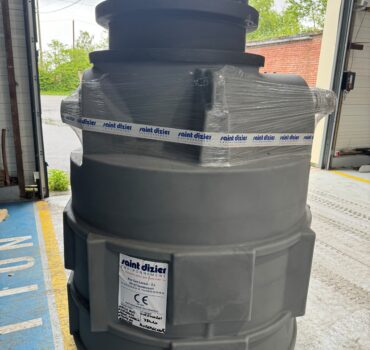
KALIO model with polyethylene socket
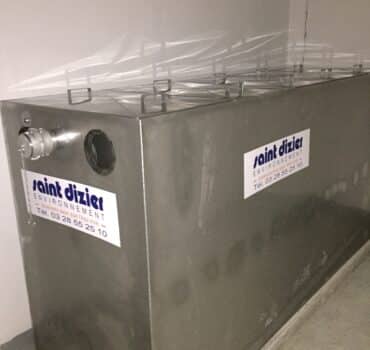
SAMBRE model in stainless steel
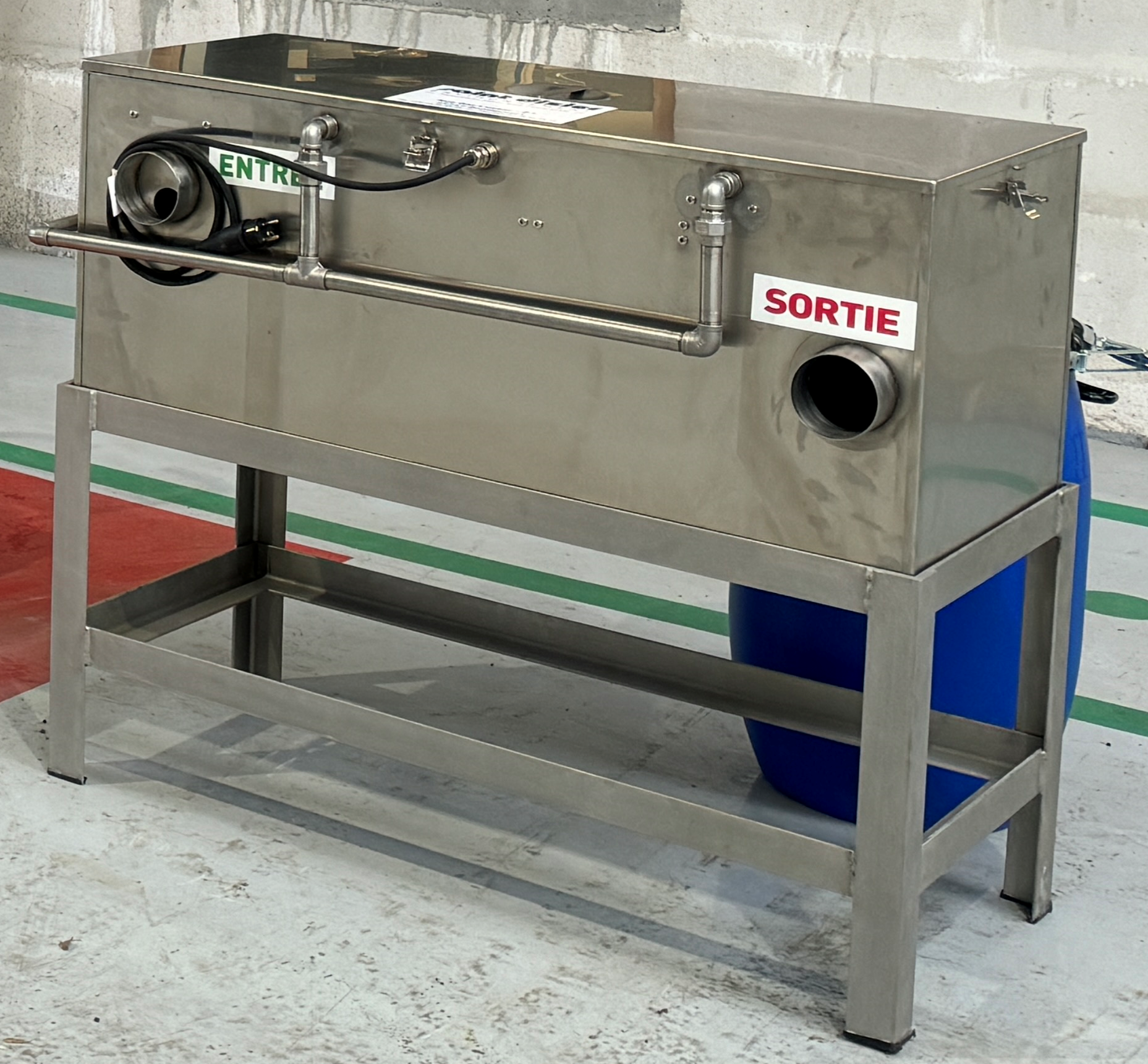
GRECUP model, with grease recovery
We can also offer you several services:
- Audit your installation
- Sizing study
- Installation and commissioning of equipment
- Operating assistance (contracts with monitoring, control and follow-up frequencies)
- Design and manufacture custom solutions to meet your exact requirements, as illustrated below for a fast-food restaurant:
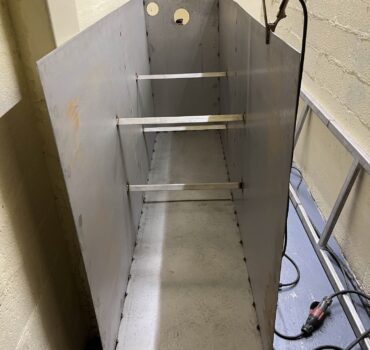
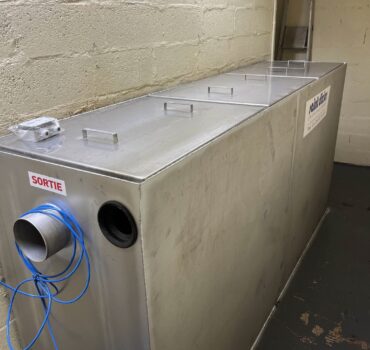
Custom design and on-site assembly by our construction department
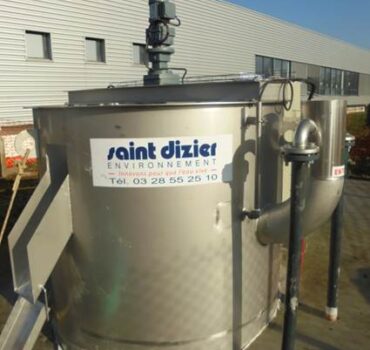
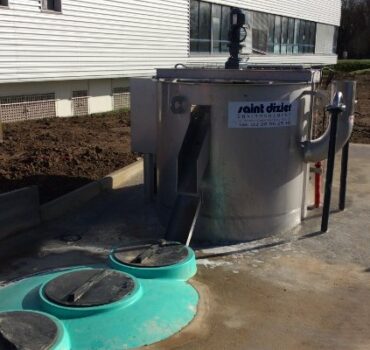
Customized design of a water pre-treatment system for a 20,000 meals/day central kitchen, with the implementation of a stainless steel aerated and scraped degreaser.
Consult our product ranges or contact us for a personalized proposal.









